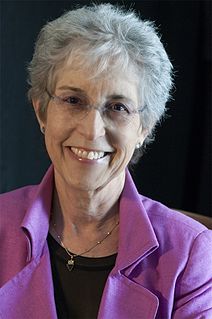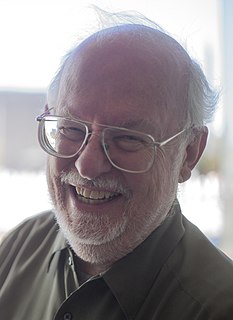A Quote by Carol Tavris
The individualism of American life, to our glory and despair, creates anger and encourages its release; for when everything is possible, limitations are irksome. When the desires of the self come first, the needs of others are annoying. When we think we deserve it all, reaping only a portion can enrage.
Related Quotes
You are not a helpless victim of your own thoughts, but rather a master of your mind. What do you need to let go of? Take a deep breath, relax, and say to yourself, 'I am willing to let go. I release. I let go. I release all tension. I release all fear. I release all anger. I release all guilt. I release all sadness. I let go of all old limitations. I let go, and I am at peace. I am at peace with myself. I am at peace with the process of life. I am safe.'
I do believe my life has no limits! I want you to feel the same way about your life, no matter what your challenges may be. As we begin our journey together, please take a moment to think about any limitations you've placed on your life or that you've allowed others to place on it. Now think about what it would be like to be free of those limitations. What would your life be if anything were possible?
We need others for our physical, emotional, and spiritual well-being. Without others we are nothing. Our sense that we are an island, an independent, self-sufficient individual, bears no relation to reality. It is closer to the truth to picture ourself as a cell in the vast body of life, distinct yet intimately bound up with all living beings. We cannot exist without others, and they in turn are affected by everything we do. The idea that it is possible to secure our own welfare while neglecting the welfare of others, or even at the expense of others, is completely unrealistic.
Notice carefully every word here. It is not our prayer which draws Jesus into our hearts. Nor is it our prayer which moves Jesus to come in to us. All He needs is access. He enters in of His own accord, because He desires to come in. To pray is nothing more involved than to let Jesus into our needs, and permitting Him to exercise His own power in dealing with them. And that requires no strength. It is only a question of our wills. Will we give Jesus access to our needs?.
Balance and control come from healthy anger. This is just as aggressive as the unhealthy kind. But it is based on a belief and hope for change in social roles and institutions. Healthy anger demands change and creates the confrontations needed for change to occur. It also gives the other an opportunity to help make that change. “Our task, of course, is to transmute the anger that is affliction into the anger that is determination to bring about change. I think, in fact, that one could give that as a definition of revolution.
We may exist in all universes, but 'hear' only one because of our limitations, the valve of our desires, our practical, physical needs. All is vibration, with nothing vibrating across no distance whatsoever. All is music. A universe, a world, is just one long difficult song. The difference between worlds is the difference between songs.
Our modern Western culture only recognises the first of these, freedom of desires. It then worships such a freedom by enshrining it at the forefront of national constituitions and bills of human rights. One can say that the underlying creed of most Western democracies is to protect their people's freedom to realise their desires, as far as this is possible. It is remarkable that in such countries people do not feel very free. The second kind of freedom, freedom from desires, is celebrated only in some religious communities. It celebrates contentment, peace that is free from desires.
Buddha says this is how one should be - no desire, because all desires are futile. They are about the future; life is in the present. All desires distract you from the present, all desires distract you from life, all desires are destructive of life, all desires are postponements of life. Life is now and the desire takes you away, farther and farther away from now. And when we see that our life is misery we go on throwing the responsibility on others, and nobody is responsible except us.
We are free, in the West, to choose; we have real choice to pursue our own desires; we are free to set the goals and contents of our own lives; the West is made up of individuals who are free to decide what meaning to give to their lives-in short the glory of the West is that life is an open book,[1] while under Islam, life is a closed book, everything has been decided for you: God and the Holy Law set limits on the possible agenda of your life.
As a principle-centered person you try to stand apart from the emotion of the situation and from other factors that would act on you, and evaluate the options. Looking at the balanced whole-the work needs, the family needs, the other needs that may be involved, and the possible implications of the various alternatives - you'll try to come up with the best solution taking all factors into consideration. We are limited but we can push back the borders of our limitations.
To eat in a monastery refectory is an exercise in humility; daily, one is reminded to put communal necessity before individual preference. While consumer culture speaks only to preferences, treating even whims as needs to be granted (and the sooner the better), monastics sense that this pandering to delusions of self-importance weakens the true self, and diminishes our ability to distinguish desires from needs. It's a price they're not willing to pay.





































